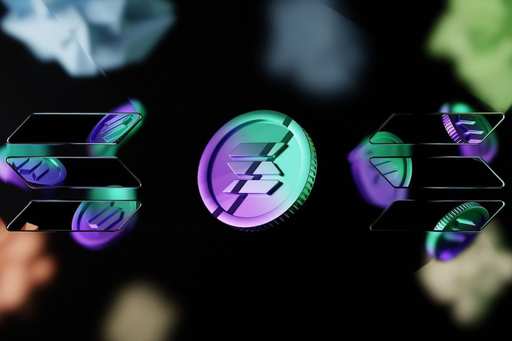
SEC Calls Solana a Security in Binance Lawsuit
The SEC's lawsuit against Binance has made waves, with altcoins like Solana being classified as securities. If upheld, this classification could fundamentally change crypto regulations, making exchanges register as securities platforms and causing market volatility.
- Published:
- Edited:
On Monday, the United States Securities and Exchange Commission (SEC) took the cryptocurrency world by storm, announcing a major lawsuit against cryptocurrency exchange giant, Binance. A litany of accusations have been levelled against the exchange and its CEO, Changpeng Zhao. However, what has raised eyebrows in the crypto community is the SEC's assertion that certain altcoins, including Solana, Polygon, and Cardano, are classified as securities.
The crux of the lawsuit revolves around thirteen charges aimed at Binance and Zhao, with allegations ranging from the mishandling of customer funds, attempting to sidestep US securities laws, and instituting dubious controls over who could conduct business with the platform. However, it's the SEC's classification of Solana, along with other altcoins like Polygon, Cardano, Filecoin, Cosmos Hub, and even gaming-centered projects such as The Sandbox, Decentraland, and Axie Infinity, as securities that threatens to have far-reaching implications.
The list of coins labeled as securities extends to Binance's own BNB token, their stablecoin BUSD, and several others, encompassing some of the largest cryptocurrencies by market cap. The immediate impact of the SEC's enforcement action was a significant drop in the prices of these tokens. Solana, for instance, saw its value plunge by over 6% within an hour of the announcement. Other coins such as Algorand, Polygon, and Polkadot, also saw their prices fall dramatically.
BREAKING: @binance LAWSUIT TALKS ABOUT SOLANA BEING A SECURITY pic.twitter.com/EdUUQVHlqR
— SolanaFloor😶🌫️ (@SolanaFloor) June 5, 2023
At the heart of the lawsuit is the SEC's argument that Binance, alongside BAM Trading—the operator of Binance.US—functioned as exchanges without SEC registration. They are also accused of being broker-dealers and clearing agencies. The SEC asserts that the cryptocurrencies in question were offered and sold as securities on both Binance’s international exchange and Binance.US, which they argue is a breach of law.
The SEC contends that "Binance and BAM Trading have unlawfully engaged in unregistered offers and sales of crypto asset securities." The Commission believes that this behavior has deprived investors of vital information, including enterprise-related risks and trends that could influence their investment decisions.
These developments carry substantial implications for the broader cryptocurrency industry. Firstly, the classification of these altcoins as securities could fundamentally change the regulatory landscape for cryptocurrencies. If upheld, it could lead to a dramatic shift in how these assets are traded, potentially requiring platforms to register as securities exchanges.
Secondly, this action could cause significant disruption to the crypto markets. The immediate response to the lawsuit was a sharp decline in the value of the cryptocurrencies identified as securities. Continued uncertainty could exacerbate this volatility, creating a challenging environment for investors.
Lastly, this move by the SEC reflects a tightening regulatory environment for cryptocurrencies, indicating that exchanges operating within the U.S. jurisdiction can expect to face increased scrutiny. These developments serve as a reminder that despite the decentralized nature of cryptocurrencies, they are not immune to regulatory interventions.
As the lawsuit unfolds, it will be crucial to keep a close eye on the SEC's stance on cryptocurrencies. The case could well be a precedent-setter, with the potential to shape the future regulatory framework of the industry and the fate of numerous cryptocurrencies.


